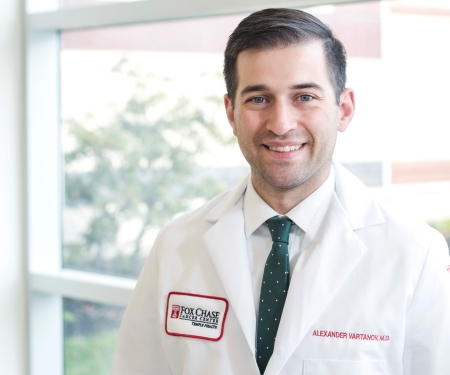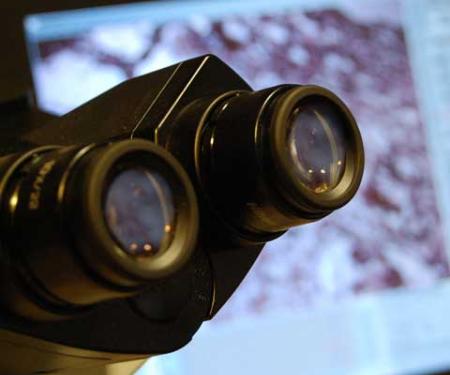Related Articles
00 / 00
Each year, Fox Chase Cancer Center welcomes six fellows who have completed an approved US residency to be part of one of the strongest combined hematology/oncology fellowship programs available.
The tight-knit academic medical oncology training offered at Fox Chase delivers outstanding career mentorship, complemented by world-class hematology expertise and the academic, clinical, and research resources of Temple University Hospital (TUH), both renowned NCI-designated clinical and research leaders. This program continues to double board, offering robust clinical experience and research opportunities in both medical hematology and oncology.
At Temple University Hospital, fellows will have exposure to all aspects of hematology, both benign and malignant. Temple is a recognized leader in the field of coagulation research. Fellows also rotate through the bone marrow transplant service. This unit performs marrow, peripheral blood stem cell, auto- and allogeneic transplants as well as matched unrelated donor and mismatched allogeneic transplants. Exposure to new technology such as non-myeloablative allogeneic transplants is also provided.
A supportive, collaborative environment and a faculty committed to helping fellows become successful leaders and innovators in medical oncology make Fox Chase Cancer Center’s Hematology/Oncology Fellowship an apprenticeship of clinical care and discovery that is second to none.
The Fox Chase hematology-oncology program gives fellows exceptional flexibility to choose and pursue the career path that’s right for them. Robust clinical and research experience prepares oncologists for real-world challenges and opportunities. After the first year, fellows elect a specific track for their training, focusing on clinical care, clinical research, or translational research, with further specialization in specific areas of interest.

The program is approved by the American Board of Internal Medicine and the Accreditation Council for Graduate Medical Education.
Fox Chase hematology/oncology fellows become oncologists on day one, with primary ownership of their patients in disease-specific continuity clinics. This apprenticeship model enables fellows to collaborate with nationally and internationally renowned experts and learn firsthand what oncology practice is like in reality, supporting and caring for patients from diagnosis through treatment.







